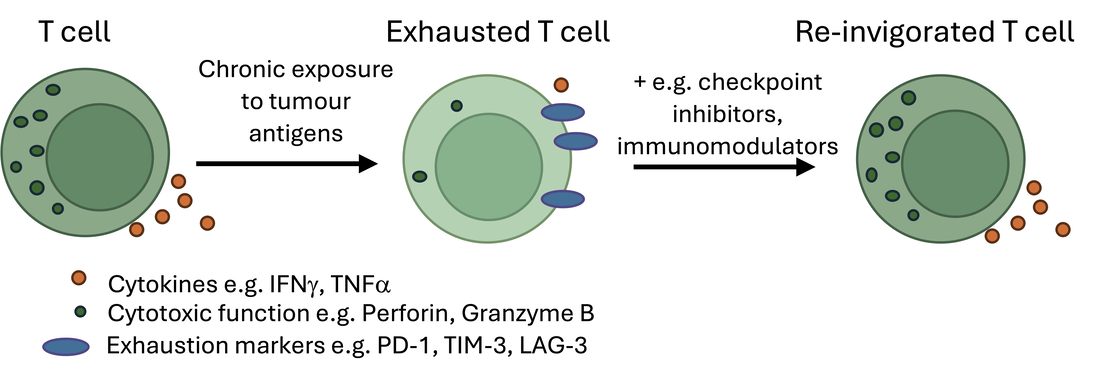Home > Therapeutic Area > Immuno-oncology
Immuno-oncology therapeutic development using human immune cells
|
Modulation the immune system and the tumour microenvironment are now proven strategies to deliver fast, durable responses against cancer. Celentyx have developed in vitro assays using human primary immune cells that profile multiple aspects of the anti-tumour immune response and modulation of the tumour microenvironment. These include:
Human immune cells can be purified from the blood of healthy volunteers or patients with cancer by magnetic-bead based separation or FACS, followed by setup of cultures in plate-based formats for therapeutic testing. Alternatively, cultures with cells following dissociation of resected tumours allows generation of additional relevant data of potential therapeutic drug impact. Typical readouts include flow cytometry, ELISA, Luminex and high-content imaging. These assays can be applied to study therapeutics impacting multiple aspects of the immune response including monoclonal antibodies, checkpoint inhibitors, stimulatory cytokines and small molecule immunomodulators. |
1. T cell exhaustion
Chronic exposure to tumour antigens may lead to T cell unresponsiveness to subsequent stimulation. Celentyx has developed a T cell exhaustion assay suitable for screening and characterisation of therapeutics that may reverse T cell exhaustion (either CD4 or CD8 T cells). Also see our dedicated T cell exhaustion assays page.
2. T cell suppression
The tumour microenvironment may contain several cell types that contribute to an immuno-suppressive environment that inhibits immune cell activation. Celentyx have developed several assays that charaterise immune suppression mediated by regulatory T cells, tumour cells and myeloid-derived suppressor cells. Also see our dedicated Suppression assay page.
3. Tumour cell killing by immune cells
Killing of tumour cells by immune cells, and enhancement of this process, whether directly or indirectly, is a key mechanism of action for many immuno-oncology immunotherapeutics. Celentyx offer a range of tumour cell killing assays using different target cells types and effector cells (e.g. T cell subsets including NK-T and γδ T cells, NK cells, macrophages, neutrophils) and assay design tailored to a therapeutic’s specific mechanism of action.
Also see our dedicated Tumour cell killing assay page.
4. Characterisation and functional responses of dissociated human tumours
Dissociation of human primary tumours provides a way to study the impact of therapeutics in a highly relevant setting. The presence of tumour and stromal cells contributes to immuno-suppression, and the presence of infiltrating immune cells, potentially exhausted or suppressive, offer critical cellular targets to modulate with potential therapeutics. Celentyx perform functional assays on dissociated tumour cells from freshly resected tumours. Detailed phenotypic and activation analysis of arising cell populations by flow cytometry (including phosflow analysis of cell signalling and/or intracellular cytokines) and multiplex analysis of supernatants by Luminex, enable the detailed impact of therapeutics on immune cell activation to be quantified. Quantification of tumour cell killing in this system is also available.



